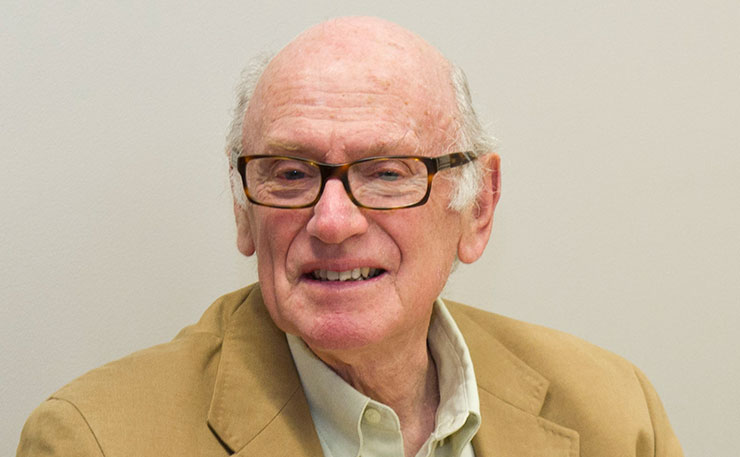Terry Russell looks back fondly on his friendship with one of Australia’s more prominent – and polarising – historians.
Earlier this month, Australia lost one of its leading historians. Dr John Bradley Hirst passed away, aged 73. Over a 24-year friendship with him, I saw a man who was very comfortable in academia but did not want to keep to narrow areas of expertise or write just for academic audiences. He also wanted to write about modern Australian society, for the whole of modern Australian society.
John wrote about a host of modern issues: the Family Court of Australia, Australia’s relationship to East Timor, cuts to public education, single parents, multi-culturalism, aboriginal Australia, and changing Australia into a republic. The book which best blends John’s interest in modern social issues with his interest in Australian history is his 2006 book, Sense and Nonsense in Australian History.
In order to reach out to wider Australian society, John’s writings – particularly since the 1990s – favoured non-academic language: lots of short words and short sentences. One early book which demonstrates John’s evolving interest in reaching out is his 1992 book, The World of Albert Facey. In it, John explored Australian society in the early twentieth century not in a distant, abstract way but through the eyes of a working class man.
John has been labelled by some as a conservative. But if you scratched the surface, John’s socio-political beliefs were a mystifying maze of nuances.
John argued that the term ‘multi-cultural Australia’ was a misnomer because of the dominant influence of our British heritage on our language and institutions. However, he also wrote in favour of Australia becoming a republic.
John also supported inserting recognition of Aboriginal and Torres Strait Islanders in Australia’s Constitution. He wanted to see, “Aboriginal people living well on their own lands.” But then in the same article he provocatively argued that in many communities, Aboriginal people themselves needed to build a, “Sense of responsibility in individuals so that they would care for themselves, their children and their communities.”
John Hirst shared former Prime Minister John Howard’s concern that many modern historians were emphasising the negatives rather than the positives in Australian history. But this did not stop him from criticising a John Howard-backed history as ‘stodgy’ or from criticising some conservative government policies, like government subsidies for the wealthiest private schools.
John declared in 2010 that Australia had seen no great Australian prime ministers, but had seen one great prime-ministership, the partnership between Bob Hawke and Paul Keating. This greatness, he explained, was due to “Their achievement of freeing up the economy from government control and ownership [which]reversed settled national policy of 80 years and was contrary to the ideology of the party they led.” Praising Labor Leaders for working contrary to the ideology of their party was classic, complicated John Hirst.
John’s conversations with me, and even some of his more recent writings, were peppered with criticism of ‘liberal fantasy’. He had particular antipathy towards American intellectual, Noam Chomsky. I used to bait him by arguing, “But Chomsky says….” Then, before continuing, I would wait for the wary smile to break over his face. To bait me, he’d start a sentence with, “Of course you’d say…” Then he’d present a preposterously radical left wing argument and wait for me to disown it. John enjoyed debate, both through serious articles and through light-hearted banter.
For holidays, John was not into fancy resorts. His idea of a holiday was to explore links with the past.
In the 1990s, we travelled together to Flinders Island to explore where remnants of the Tasmanian Aboriginal race were interned in the 1830s. We travelled to Jamieson and Omeo in the Victorian high country to explore old goldfields.
More recently, we travelled to Balibo in East Timor to see where an Australian news crew was killed in 1975. John never really stopped working. Even in retirement, he continued to teach Australian history to groups of students for free.
John Hirst’s legacy will be the fiercely independent analysis he offered on Australian history and Australian social issues. His firmest beliefs were not in any conservative ideology but in the important role of debate in Australian democracy.
Donate To New Matilda
New Matilda is a small, independent media outlet. We survive through reader contributions, and never losing a lawsuit. If you got something from this article, giving something back helps us to continue speaking truth to power. Every little bit counts.





